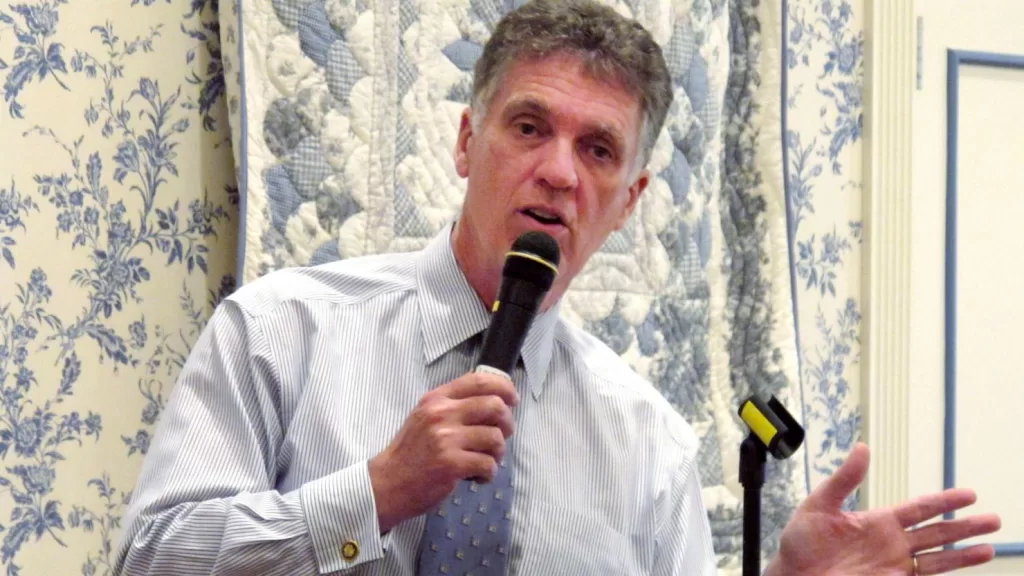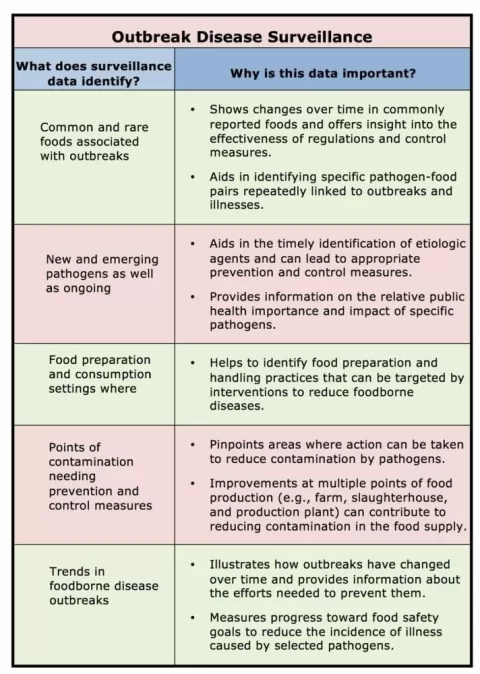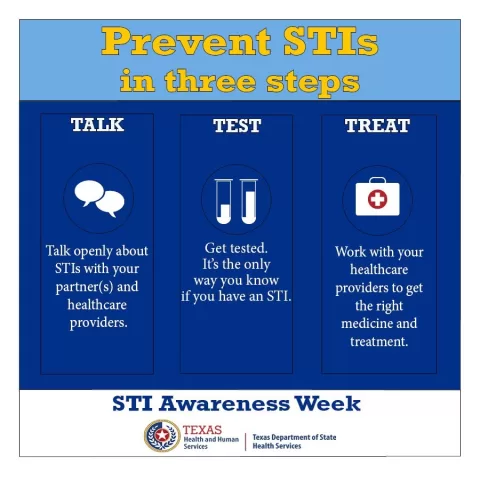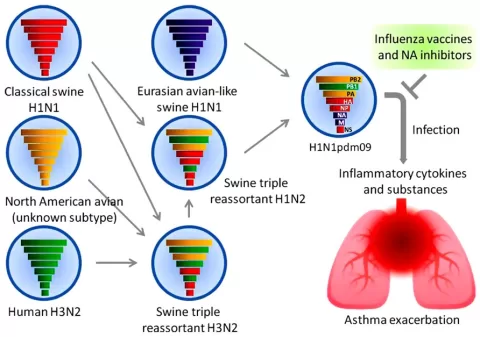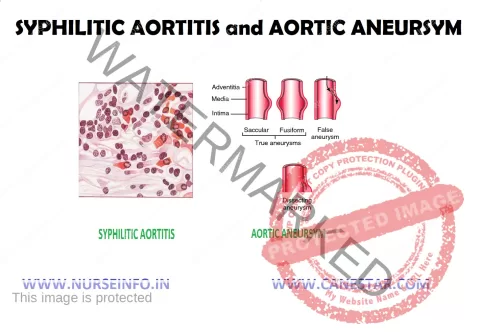The recent CDC nomination of Susan Monarez, PhD, as the agency’s new director marks a pivotal moment for public health leadership in the United States. Monarez, who has already been serving as acting director, brings a wealth of experience from her roles within the Department of Health and Human Services and significant technological expertise relevant to current health crises. With pressing challenges such as the measles outbreak and the lingering impacts of the COVID-19 pandemic still at the forefront, her leadership will be crucial in steering the CDC towards improved health outcomes. Experts highlight that Monarez’s strategic approach could play a key role in addressing antimicrobial resistance and implementing new technologies in public health. As the nomination awaits Senate confirmation, many in the healthcare community are eager to see how her vision for the CDC unfolds amidst evolving health challenges.
The nomination of Susan Monarez to lead the Centers for Disease Control and Prevention represents an important stride for the organization tasked with safeguarding public health. As the acting director, Monarez has already navigated significant obstacles, including a notable measles outbreak, and has extensive experience in healthcare policy and innovation. This transition comes at a critical time when the agency faces the ongoing ramifications of the COVID-19 crisis and the urgent need to improve health administration strategies. Monarez’s expected confirmation brings hope for a proactive response to current public health emergencies and a renewed focus on educational initiatives about infectious diseases. The impact of her leadership is anticipated to resonate throughout the public health framework as the nation adapitates to recent biological challenges.
Susan Monarez: The New CDC Nominee and Her Vision for Public Health
The White House has officially nominated Susan Monarez, PhD, to lead the Centers for Disease Control and Prevention (CDC), paving the way for her to implement vital public health initiatives. With her extensive background, including a focus on infectious disease control and modern technological applications in health, Monarez is deemed well-positioned to tackle the substantial challenges facing the agency. This nomination arrives at a critical time, as the CDC grapples with outbreaks like measles and the ongoing implications of COVID-19 healthcare reforms.
Monarez’s leadership style emphasizes collaboration and innovation, particularly in combatting antimicrobial resistance and utilizing artificial intelligence to enhance health outcomes. Her previous role as deputy director of the Advanced Research Projects Agency for Health showcases her commitment to advancing public health policies through cutting-edge research. As she takes on the reins of the CDC amid ongoing public health crises, her proactive approach aims not only to stabilize current health threats but also to reinforce the agency’s credibility and effectiveness in safeguarding public health.
Tackling the Measles Outbreak: Monarez’s Priorities
As the CDC faces a significant measles outbreak, Monarez’s appointment comes at a pivotal moment. With reported cases in multiple states, including Tennessee’s recent diagnosis, it is clear that immediate public health intervention is needed. Monarez will likely prioritize vaccination campaigns and improve community engagement to combat misinformation surrounding vaccine hesitancy. She understands that public confidence in vaccines is crucial to controlling and preventing the spread of preventable diseases like measles.
During her tenure, Monarez may leverage data-driven strategies to identify communities most at risk and deploy tailored outreach efforts to educate populations about the importance of vaccination. Her experience in utilizing advanced technologies could amplify these initiatives, ensuring they reach a broad audience effectively. The fight against this outbreak will test her capacity to lead the CDC through new public health challenges that mandate agility, collaboration, and comprehensive communication.
The Impact of COVID-19 on Public Health Systems
The COVID-19 pandemic has transformed public health systems, highlighting significant deficiencies while also showcasing the potential for rapid innovation. As Monarez steps into the role of CDC director, she will be tasked with addressing these disparities, particularly in marginalized communities disproportionately affected by the virus. Research indicates that individuals living on tribal lands, such as the Navajo Nation, have experienced prolonged symptoms of COVID-19, underscoring the need for targeted public health strategies.
Additionally, factors like prior vaccination status have emerged as crucial elements in mitigating the impacts of long COVID, a concern that Monarez should prioritize. By focusing on equitable healthcare access and ramping up vaccination efforts, she can help curtail the long-term health implications that threaten to overwhelm public health systems already stretched thin by the pandemic.
Artificial Intelligence in Public Health: Monarez’s Strategy
With innovative advancements in technology, particularly artificial intelligence (AI), Monarez aims to enhance the CDC’s decision-making and resource allocation capabilities. By integrating AI into public health strategies, Monarez can facilitate faster and more accurate responses to emerging health threats. The use of AI-driven analytics could assist the CDC in forecasting outbreaks and identifying at-risk populations, which is increasingly relevant in the context of rising infections and public health threats.
The application of machine learning and predictive modeling can streamline pandemic response efforts, from vaccine distribution logistics to real-time tracking of disease spread. Monarez’s vision includes fostering partnerships with tech firms to harness these tools, ensuring that public health agencies are equipped with the best resources available to protect communities. This forward-thinking strategy places technology at the forefront of public health initiatives, paving the way for a healthier future.
Public Health Policy Reforms: Addressing Staffing and Funding Challenges
As Monarez takes on her leadership role, she will confront significant challenges, notably staffing shortages and funding constraints within the CDC. The agency must navigate these obstacles while still addressing urgent public health issues, including the ongoing measles outbreak and COVID-19 response efforts. A renewed focus on resource allocation and workforce expansion will be necessary to build a robust public health infrastructure capable of withstanding future public health crises.
In her strategy, Monarez will likely advocate for increased funding allocations and better support for public health workers, emphasizing their crucial role in safeguarding community health. By implementing effective workforce training and retention programs, she can help the CDC stabilize its operations and enhance its responsiveness to emerging health threats. This reform agenda will not only address immediate staffing challenges but also pave the way for a sustained, empowered public health workforce.
Recommendations for Combating Vaccine Hesitancy
Addressing vaccine hesitancy has become a vital component of public health strategy, particularly as the CDC deals with preventable diseases like measles. Monarez’s nomination comes at a pivotal time when rebuilding public trust in vaccines is crucial. Effective communication strategies, involving community leaders and health professionals, will be key in combating misinformation and promoting vaccine acceptance, especially in communities experiencing outbreaks.
Education campaigns that explain the safety and efficacy of vaccines, along with testimonials from vaccinated individuals, can help alleviate fears and reinforce the importance of immunization. By fostering an open dialogue about vaccination and addressing the concerns of hesitant individuals, Monarez aims to create an informed public that recognizes vaccines as crucial tools for health. Engaging local influencers and utilizing social media platforms can amplify these efforts significantly.
The Future of Disease Monitoring and Reporting
Monitoring and reporting disease outbreaks effectively is critical for timely public health responses, especially in light of the current measles outbreak. Under Monarez’s leadership, the CDC is expected to enhance its disease surveillance frameworks, potentially incorporating advanced technology to facilitate real-time data collection and analysis. This modernization will be instrumental in identifying trends, determining at-risk populations, and executing timely interventions during outbreaks.
Collaboration with state health departments and local agencies will be crucial in establishing robust monitoring systems. Monarez may prioritize initiatives that encourage data sharing and transparency among public health entities, ensuring that critical information flows seamlessly to guide decision-making and policy formulation. As outbreaks occur, having a solid foundation for disease reporting will enable the CDC to respond swiftly and effectively.
Leveraging Community Engagement in Public Health Initiatives
Community engagement is an essential component of successful public health initiatives, especially as the CDC aims to combat emerging health threats. Monarez’s approach will likely involve strengthening partnerships with community organizations, faith-based groups, and local leaders to enhance outreach and education efforts. By capitalizing on these relationships, the CDC can foster trust and cooperation among the communities it serves, which is especially critical in combating vaccine hesitancy and improving health outcomes.
Implementing grassroots strategies that empower communities to take ownership of their health can lead to better engagement in public health campaigns. Under Monarez’s leadership, the CDC may prioritize initiatives that encourage local participation and feedback in planning and executing health interventions. This inclusive approach ensures that public health messages resonate with the community, leading to better compliance and healthier populations.
Addressing the Impact of Antimicrobial Resistance in Public Health
Antimicrobial resistance (AMR) poses a significant threat to public health, and Monarez’s expertise in this area positions her to tackle this pressing issue. As bacterial strains become resistant to current treatments, the CDC must intensify its efforts to combat AMR through education, research, and policy reform. Monarez can champion initiatives aimed at promoting responsible antibiotic use and developing new treatment protocols to mitigate the risks associated with AMR.
Furthermore, collaboration with healthcare providers and pharmaceutical companies will be crucial in advancing research on alternative therapies and guiding clinical practices. Monarez’s data-driven approach can align efforts across various sectors, fostering a comprehensive response to the AMR crisis. By prioritizing this issue, the CDC can enhance overall public health and reduce the burden of infections that threaten health systems globally.
Frequently Asked Questions
What are the implications of Susan Monarez’s CDC nomination during the measles outbreak?
Susan Monarez’s nomination as the new director of the CDC comes at a critical time, as the agency navigates a significant measles outbreak and other public health challenges. Her leadership is crucial in implementing effective strategies to combat the outbreak and ensure proper vaccination outreach to unvaccinated populations.
How will Susan Monarez’s CDC leadership address ongoing public health issues?
As the acting director of the CDC, Susan Monarez is expected to leverage her experience with advanced health technologies to address ongoing public health issues, such as the recent measles outbreak and the COVID-19 healthcare situation. Her nomination reflects the need for innovative approaches to enhance public health outcomes.
What experience does Susan Monarez bring to the CDC leadership role?
Susan Monarez brings extensive experience to her CDC leadership role, having previously served as the deputy director of the Advanced Research Projects Agency for Health. Her focus on technology and health strategies positions her well to tackle the various health crises facing the CDC, including measles and COVID-19.
How does the CDC plan to respond to the current measles outbreak under new leadership?
Under Susan Monarez’s new leadership, the CDC is expected to intensify its response to the measles outbreak through collaboration with state health departments, vaccination campaigns, and educational initiatives aimed at increasing awareness and immunization rates in affected communities.
What challenges does the CDC face with Susan Monarez’s nomination?
With Susan Monarez’s nomination, the CDC faces challenges such as staffing cuts and the ongoing risk of infectious diseases like measles and avian flu. Her ability to navigate these challenges while ensuring preparations for ongoing COVID-19 healthcare needs will be crucial for the agency’s success.
What strategies might Susan Monarez implement as the new CDC director in light of recent disease outbreaks?
As the new CDC director, Susan Monarez may implement strategies focused on vaccination promotion, public health education, and leveraging technology for data analysis and outbreak response, particularly in light of the ongoing measles outbreak and lessons learned from the COVID-19 pandemic.
| Key Point | Details |
|---|---|
| Nomination of Susan Monarez | Susan Monarez, PhD, is nominated to be the director of the CDC following the withdrawal of David Weldon, MD. |
| Prior Experience | Monarez has extensive experience in health administration, previously serving as deputy director of the Advanced Research Projects Agency for Health. |
| Current Challenges at the CDC | The CDC is facing a measles outbreak and other public health concerns amid staffing cuts and changing priorities. |
| Recent Measles Cases | Tennessee has reported its first measles case of the year and Kansas has reported 10 cases among under-vaccinated children. |
| Long-COVID Research | A study indicates that a significant proportion of adults and children in tribal areas continue to exhibit symptoms post-COVID. |
| Antibiotic Duration Study | Research suggests that a seven-day antibiotic regimen is effective for uncomplicated bloodstream infections. |
| Health Beliefs Survey | Frequent antibiotic users display differing beliefs about healthcare and greater distrust in science compared to nonusers. |
| H5N1 Cases in Cambodia | Cambodia has reported three fatal human H5N1 cases this year, with potential links to poultry exposure. |
Summary
The CDC nomination of Susan Monarez marks a pivotal moment as she steps into a leadership role while the agency confronts significant public health challenges, including a notable measles outbreak and ongoing concerns regarding avian flu. Monarez, with her extensive background in health administration and innovative technology, is poised to drive the CDC’s strategic efforts to enhance health outcomes and manage pressing health threats. Her leadership comes at a critical juncture for the CDC, showcasing the urgent need for revitalized public health strategies in response to emerging infectious diseases.
The content provided on this blog (e.g., symptom descriptions, health tips, or general advice) is for informational purposes only and is not a substitute for professional medical advice, diagnosis, or treatment. Always seek the guidance of your physician or other qualified healthcare provider with any questions you may have regarding a medical condition. Never disregard professional medical advice or delay seeking it because of something you have read on this website. If you believe you may have a medical emergency, call your doctor or emergency services immediately. Reliance on any information provided by this blog is solely at your own risk.



